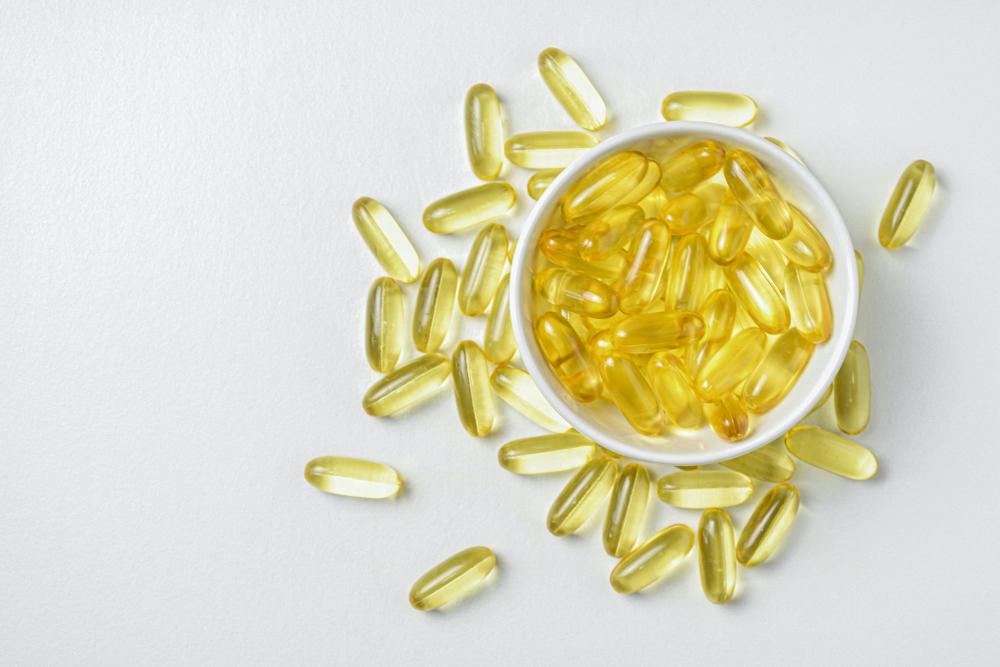What supplements can help improve your mental wellbeing

We often take supplements to improve or support physical health problems, but supplements are just as beneficial when it comes to mental health and wellbeing. Our brain is an organ that requires many different nutrient to function optimally and when struggling with mental health, getting the correct nutrition in can become more challenging. This is where supplements come in handy.
Some of the supplements you may be taking already can help with your mental health. Have a read below to learn the health benefits.
Fish oils
Omega 3 fatty acids EPA and DHA which is found in fish oils play an important role in brain health through all stages of life, starting in the womb. It can help improve memory and cognitive well being. Fish oils have excellent anti inflammatory capabilities and a recent study has shown that taking fish oil supplements improved symptoms of depression.
Magnesium
Having a deficiency in this mineral can be linked to mental health disorders from anxiety to addiction to postpartum depression. Studies have shown magnesium is able to control the neurotransmitters in the brain helping to produce a calming effect. Low levels of magnesium in the body have been linked to increased cortisol (the stress hormone). Having high levels of stress in the body can also lead to a magnesium deficiency.
Vitamin B complex
Made up of all the different B vitamins in one convenient tablet. B Vitamins play an important role when it comes to mental health and well being.The different B vitamins have different benefits for example B6 is involved in the production of neurotransmitters that are important for mood regulation. B9 and B12 can increase the production of serotonin and dopamine which are two of the ‘happy hormones’. Being deficient in B vitamins can result in cognitive decline, depression, anxiety and memory loss.
Iron
Having low levels of iron in the body is often associated low levels of serotonin. Studies have shown that iron deficient anemia may increase the risk of mental health disorders such as depression, anxiety, panic attacks and a decline in cognitive function. Iron is important role in the production of red blood cells, which carry oxygenated blood around the body including to the brain. Having low levels of oxygen in the blood can result in fatigue, loss of focus irritability and mood changes.
Overview
Supplement should never be taken in replace of a healthy diet, but they do definitely have their place. Mental health illnesses can make it hard to following a healthy nutritious diet, so supplements can play an important role in helping to meet the recommended daily allowance of vitamins and minerals. Remember to always speak to your Doctor before starting a new supplement, especially if you have and illness or on existing medication.
View our related products below to shop!
References
Cognitive well being - https://www.ncbi.nlm.nih.gov/pmc/articles/PMC9641984/
Study - https://www.ncbi.nlm.nih.gov/pmc/articles/PMC4872453/
Iron studies - https://bmcpsychiatry.biomedcentral.com/articles/10.1186/s12888-020-02621-0
Depression, anxiety - https://www.healthshots.com/mind/mental-health/an-iron-deficiency-could-be-behind-your-deteriorating-mental-health-an-expert-explains/
Control neurotransmitters - https://www.healthdirect.gov.au/blog/can-magnesium-help-to-reduce-anxiety
Cortisol - https://www.healthdirect.gov.au/the-role-of-cortisol-in-the-body
High levels of stress - https://www.healthdirect.gov.au/blog/can-magnesium-help-to-reduce-anxiety
Deficient in B vitamins - https://www.webmd.com/vitamins-and-supplements/what-to-know-about-vitamins-and-mental-health
Production of neurotransmitters - https://www.medicalnewstoday.com/articles/219662
B9 and B12 - https://www.mayoclinic.org/diseases-conditions/depression/expert-answers/vitamin-b12-and-depression/faq-20058077
Serotonin and Dopamine - https://bluepages.anu.edu.au/lifestyle-treatments/b-vitamins/
Low levels of serotonin - https://www.ncbi.nlm.nih.gov/pmc/articles/PMC4253901/
Fatigue - https://www.nhs.uk/conditions/iron-deficiency-anaemia/











